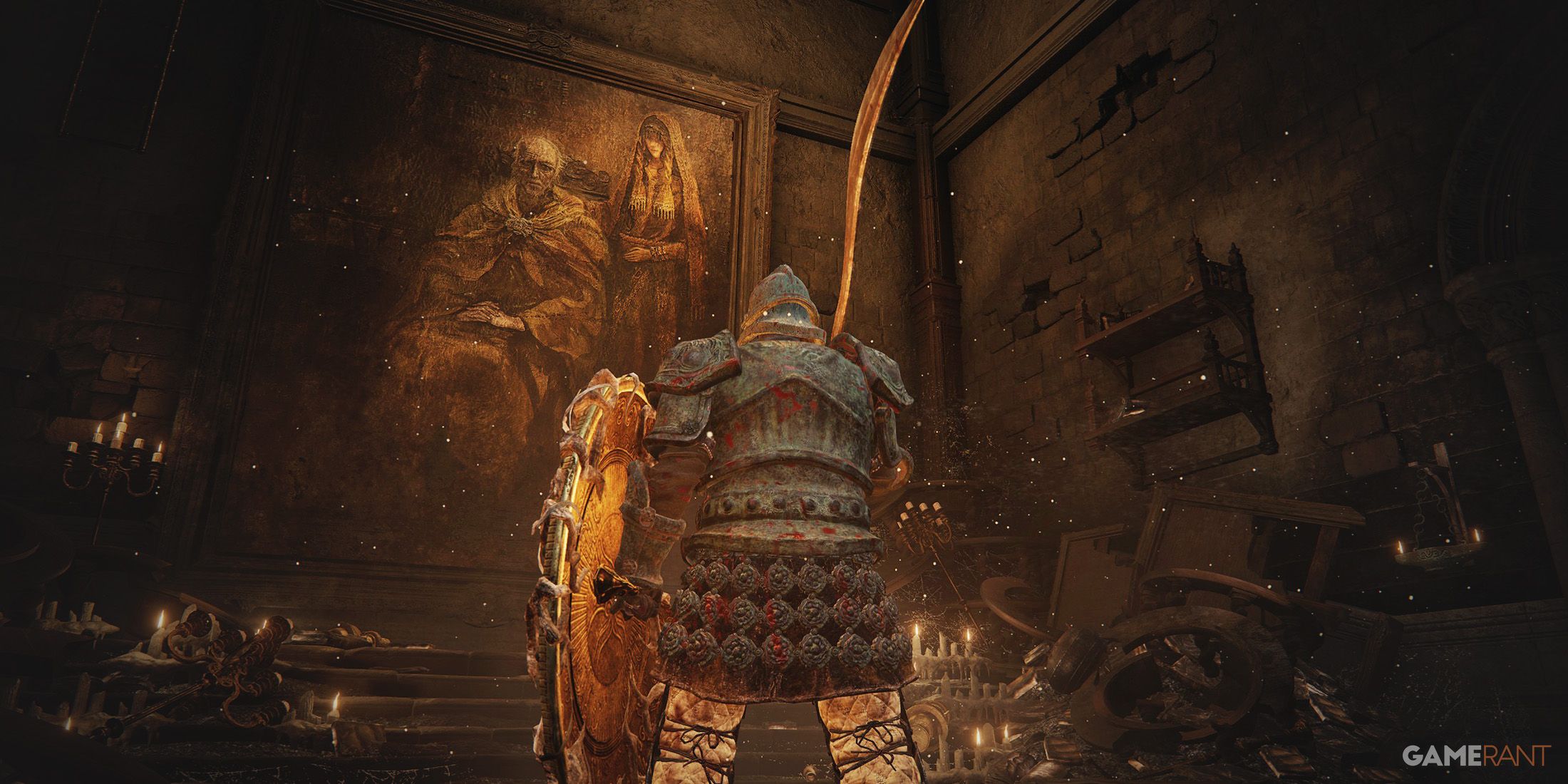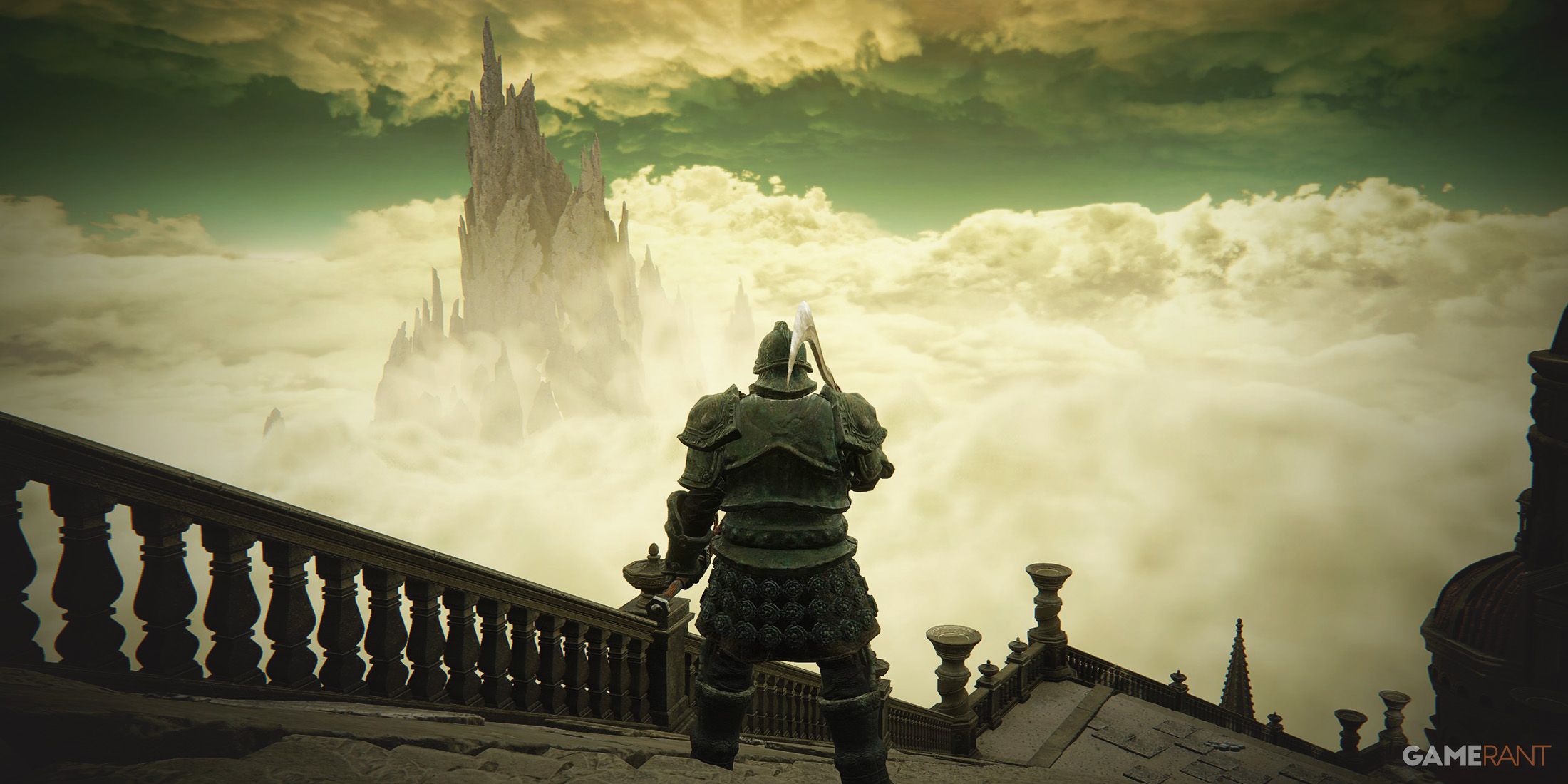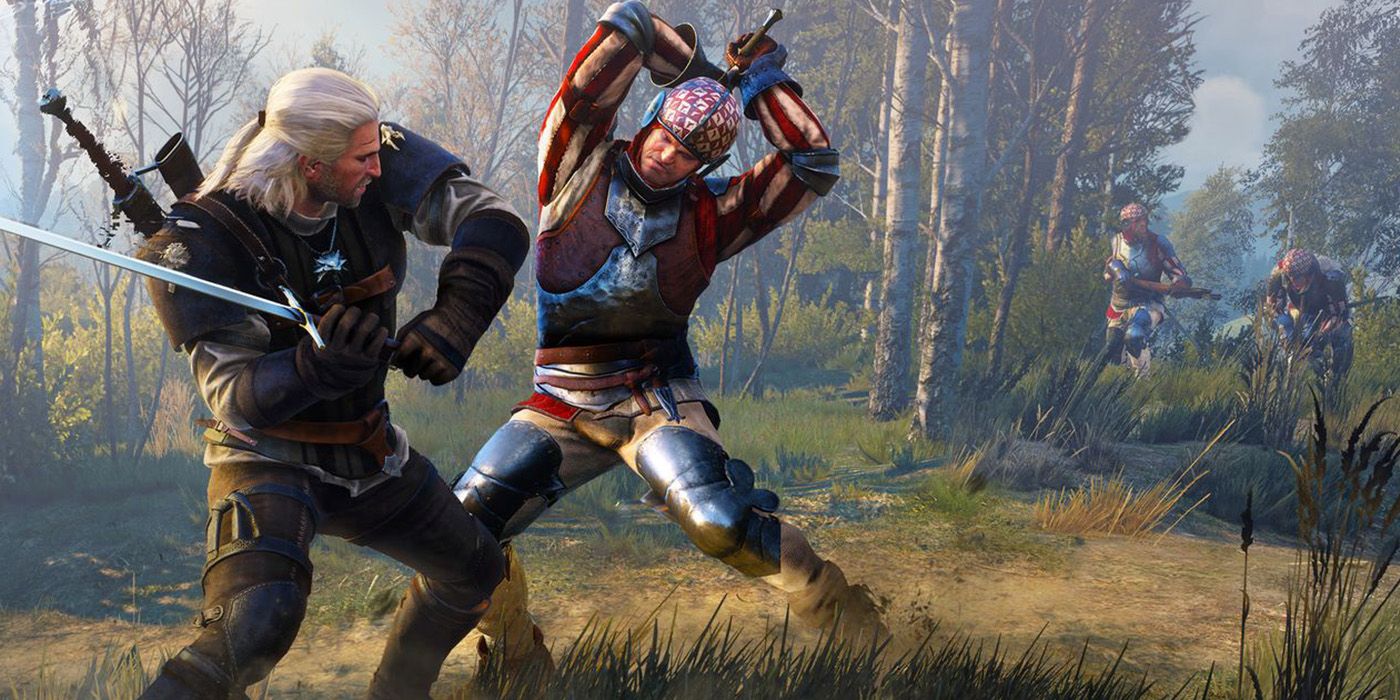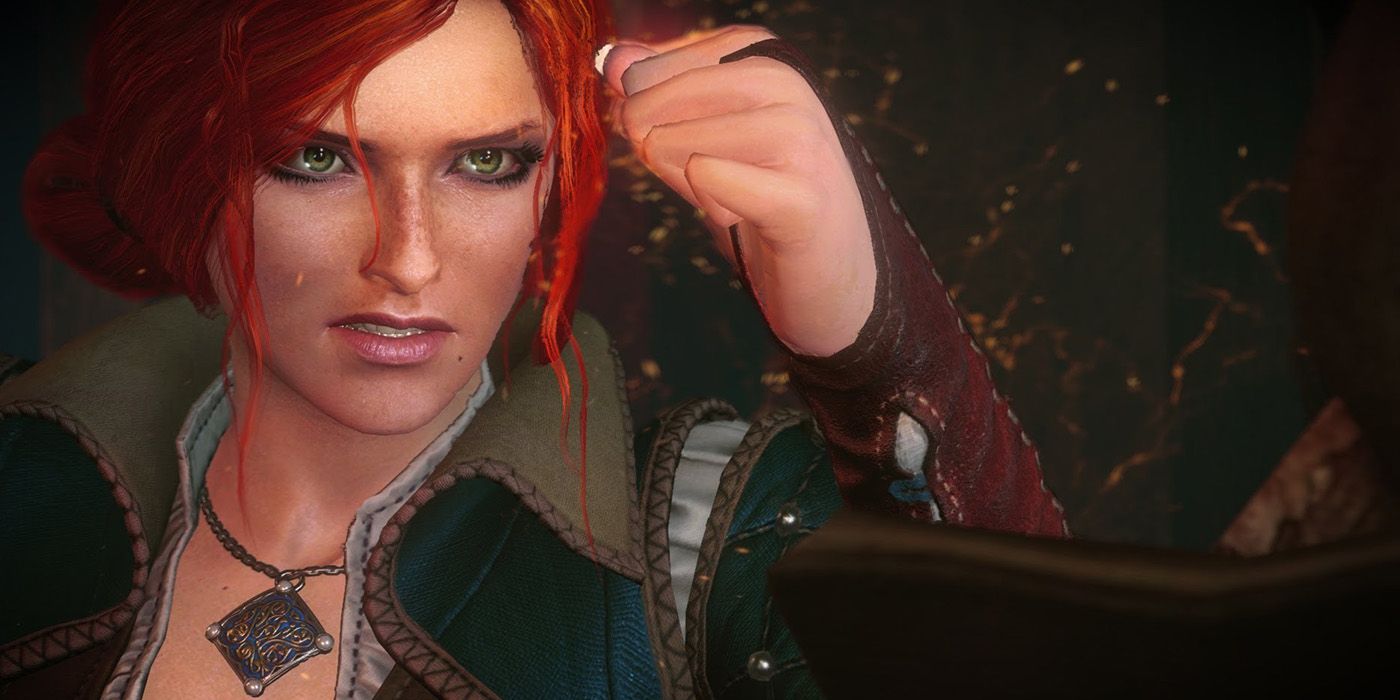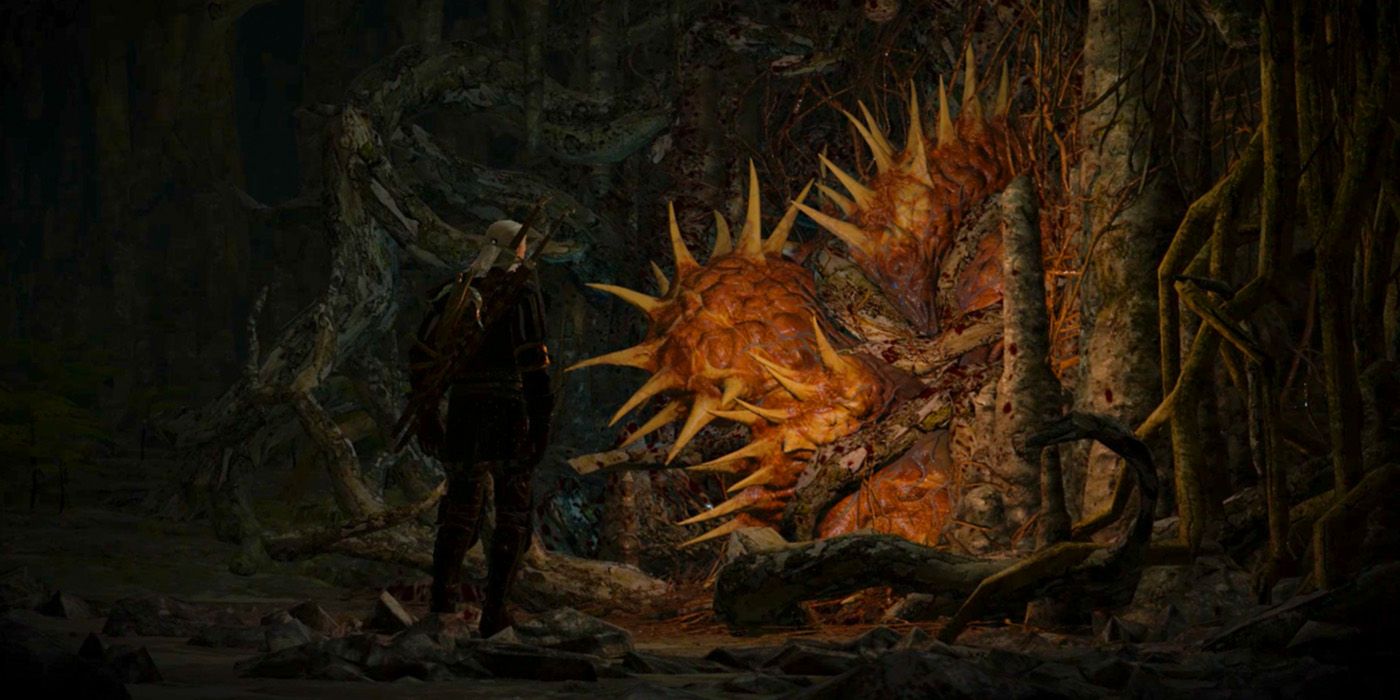The Witcher 3 is known for its well-written quests--and even more so for the sometimes devastating potential behind some of the decisions that players can make. Furthermore, not always clear to players, when they're faced with a decision in-game, exactly how big of an effect it'll have on Geralt and the rest of the world.
As players will also discover, it's not just the "main story" quests that carry weight; unlike other RPGs, consequences in this game are found in side-quests and even seemingly simple Witcher contracts. In the interest of making things a little less stressful, here's a summary of the most difficult decisions that Geralt can make in The Witcher 3, and every possible result of each choice.
Count Reuven's Treasure
During Geralt's search for Ciri in Novigrad, he'll be tasked with locating the whereabouts of Djikstra's treasure. This main quest gets complicated when the trail leads to Caleb Menge, the leader of the Witch Hunters--at the same time, Geralt's friend and old flame, Triss Merigold, gets involved in the quest. Over the course of the quest, Geralt and Triss trick their way into the Witch Hunters' headquarters using Triss as bait, and then Geralt is faced with a choice: allow her to be tortured by the Witch Hunters while he wheedles information out of Menge, or abandon the plan and fight his way through the Witch Hunters to Triss.
As anyone who plays through the quest will discover, listening to Triss be tortured all while trying to play things cool isn't easy, and there are several opportunities for Geralt to throw caution to the wind and start slicing up Witch Hunters. On the other hand, the whole thing is Triss's plan, and she actually isn't too thrilled if Geralt blows it off to save her when she told him on no uncertain terms that she can handle herself. The quest can be completed either way, but trusting Triss to do her thing also allows her to get some well-deserved revenge on Menge too.
Following the Thread
This side quest introduces players to Lambert, one of Geralt's fellow Witchers from the School of the Wolf. An ekimmara hunt turns into a quest for personal revenge, as Geralt helps Lambert track down a man called Jad Karadin: a retired Witcher responsible for the death of Lambert's friend, another Witcher named Aiden.
The tough part is deciding whether or not to let Lambert kill Jad Karadin, who claims to be a changed man. His Witcher days are over, and he has gotten married and adopted children in the years since. Players can opt to kill Karadin in front of his family, or convince Lambert to let him live. Lambert will certainly be a bit surly with Geralt if his vengeance is denied--but then again, Lambert is always a bit surly with Geralt, so players will just have to listen to their conscience on this one.
For the Advancement of Learning
Over the course of his time with the sorceress Keira Metz, Geralt will find himself clearing out a haunted tower, one formerly used for research into certain plagues. Later, it'll be up to Geralt to decide Keira's fate, letting her bring this plague research to Redania, fighting her for it right then, or convincing her to go to Kaer Morhen instead.
Should Keira be allowed to leave for Redania with the research, she'll end up burned at the stake at Radovid's orders. Should Geralt try to take the research from her outright, he'll end up battling (and killing) her. So, if players want Keira to live, they'll need to convince her to go to Kaer Morhen. It doesn't require any special skills; simply object to her going to Radovid and offer her an alternative when she asks.
The Whispering Hillock
Earlier in the game, Geralt's time in Velen leads him to the Crones of Crookback Bog, who order him to kill a strange, malicious tree spirit trapped within a dangerous hill. Upon reaching the spirit, however, it'll tell Geralt that it can save the children living in Crookback Bog, whom the Crones will kill and eat otherwise; all Geralt has to do is set it free, knowing it'll take vengeance on the people of Downwarren (a small hamlet in Velen) for asking the Crones to imprison it.
Players will simply have to decide which is the lesser of two evils. There are plenty of children living in Downwarren, too, and if the tree spirit goes free the entire hamlet is destroyed. The Crones are also extremely unhappy if Geralt defies them, and his releasing the spirit leads to the death of the Bloody Baron's wife, Anna, and the death of the Baron himself. The Crones are also boss enemies whom Ciri will face off against at a later time in the game. Basically, there's a lot of heavy, unhappy aspects of this quest, so it's up to players to figure out which of the consequences they can live with.
Contract: Skellige's Most Wanted
This contract quest is interesting because there's actually no difficult choice here; rather, the consequences of this quest are decided by Geralt's previous actions in other quests. Essentially, this contract comes to a climax when Geralt finds his quarries, a team of monsters consisting of a troll, a werewolf, a godling, and a doppler. The werewolf is beyond reason and wants Geralt dead, but the reactions of the other three actually depend on how Geralt has treated sentient monsters in the past.
If he let the godling Sarah remain in Novigrad, helped Johnny in "Ladies of the Wood," spared Salma in "Contract: Deadly Delights," or acted with compassion towards nonhumans in a number of other optional quests throughout the game, the rest of the creatures here will take Geralt's side and allow him to dispatch the werewolf before leaving peacefully. So, players should just keep in mind that benevolence (or cruelty) in seemingly one-off side quests can have a ripple effect throughout the rest of the game.
Blood on the Battlefield
There are three possible outcomes for Ciri at the end of The Witcher 3. Now, most (sane) players would probably agree that "Ciri dying" isn't a great ending, so the decision to avoid that shouldn't be too difficult. The harder choice is whether she becomes the Empress of Nilfgaard (since arguably she'd be a much better ruler than her cold and iron-fisted father) or takes on the life of a Witcher, following in her adoptive father's footsteps. And sure, Ciri does make a good empress, but for the sake of her own happiness, she does appear to lead a more contented life as a Witcher, going by the epilogue slides. Plus, it's not like she can't still do a lot of good as a legendary monster-slayer! Both are considered "good" endings for Ciri.
In order to keep Ciri alive, players must pick the dialog options of an appropriately supportive adoptive father with her throughout Geralt's time with Ciri, whereas the choice of whether or not to make Ciri the empress is made entirely during the quest "Blood on the Battlefield." Players have the option to bring her to Vizima on their way to confront the Crones on Bald Mountain. Should they do so and accept Emhyr's payment for locating his daughter, however, they'll do a lot of damage to the relationship between Geralt and Ciri.
While there are probably other quests in The Witcher 3 that'll cause some moral dilemmas for players, these are definitely some of the most notable. However, so long as players remember Geralt's usual method of approaching life and the gruff way in which he cares for innocent people and creatures alike, there hopefully won't be too much heartache in the wake of the game's monumental decisions.
The Witcher 3 is available now for PC, PS4, Switch, and Xbox One.

